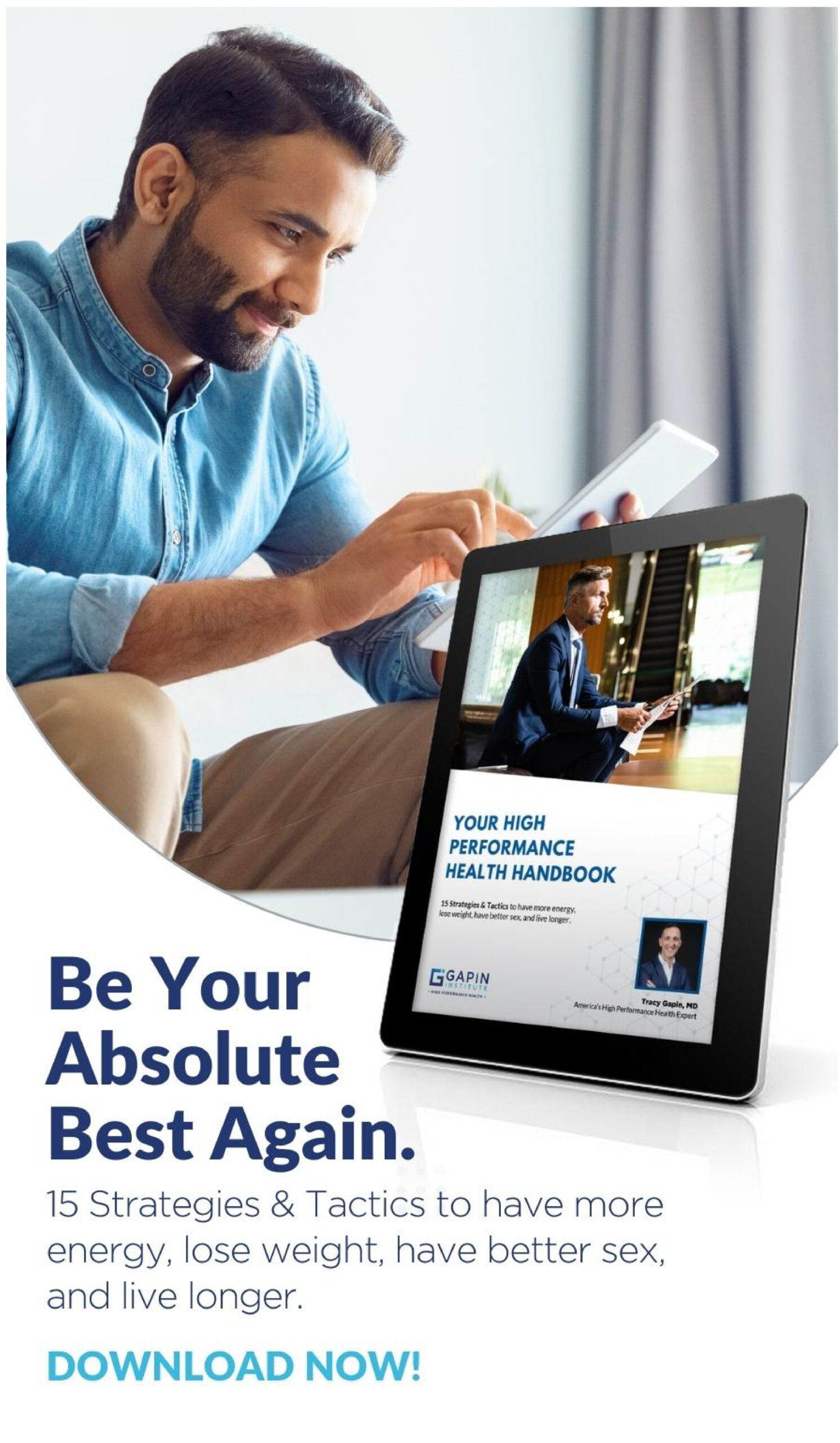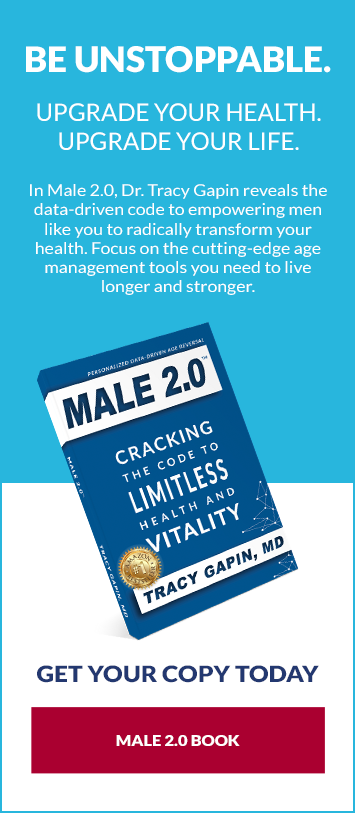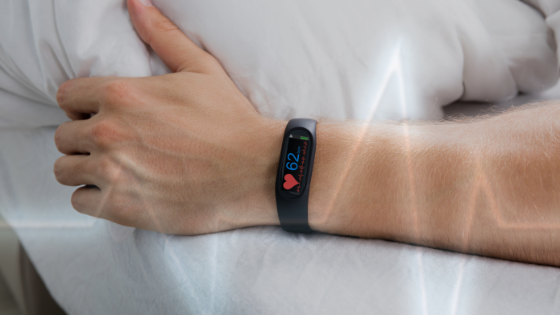
Does your brain automatically go to “sleep gadgets” when you think about optimizing your health? Most, often, when we think about optimizing our health we often go to diet and exercise first. But there is another very important (and often neglected) factor that, if left unchecked, can negate any progress you may be making in other areas of your health. Getting your zzzz’s!
This is where sleep gadgets and tools come in. We now have access to sleep activity trackers and apps that are like having a sleep technologist right in your room!
So if you want to uplevel your health, start with your sleep. If you’re not sleeping enough or well enough, your quality of life can be impacted. Quality sleep is critical for physical, mental, and emotional health—both in the short term and the long term.
Your body needs sleep to reset, restore, and repair. It takes this time to form neural pathways that are critical for information retention, memories, critical thinking, cognitive function and regulation of emotions and behavior.
![]()
Your body also needs sleep to keep your blood, hormones, and organs healthy. For example, sleep is necessary to heal and repair your blood vessels; failing to do so can lead to heart disease, high blood pressure, and increased risk of stroke. A lack of sleep is also linked to a risk of obesity and weight-related health problems.
Sleep interacts with your daily life as well. Without rest, you’ll be unproductive, unfocused, and unmotivated, which can quickly disrupt every area of your life, from your career to your personal relationships.
Studies show that just ONE night of poor sleep can alter your DNA, change genetic expression and negatively impact your health. You can read more about the importance and role of sleep here.
With the accessibility of new tech at your fingertips, you can now find all the sleep help you need. Let’s explore some of the latest and cutting edge sleep gadgets to optimize your health.
Track your sleep
Most men think they are getting good sleep. But sleep doesn’t just mean ‘8 hours’.
It’s not all about the number of hours slept, but the quality and depth of that sleep as well. Understanding the quality of sleep is critical to improving your health. So how do you know you’re actually getting good sleep if you aren’t tracking it?
In order to make adjustments that will improve your sleep, you need to first understand how you’re currently sleeping. And this is why tracking your sleep is so critical. Did you know one week of “poor sleep” can decrease testosterone levels by as much as 15%?!!
Tracking your sleep helps you understand not just how long you sleep, but also the quality of your sleep. It helps you analyze your sleep patterns to improve your sleep schedule and environment.
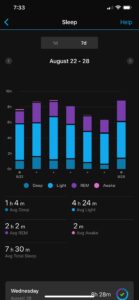
![]()
The best sleep trackers will monitor how much deep sleep versus light sleep you’re getting, how long it takes you to fall asleep (“sleep latency”), and how often you wake up throughout the night.
You want a sleep tracker that will take into account your movements alongside the external environment of your bedroom to best optimize your nights.
Check out these tools that offer comprehensive sleep tracking:
Oura Ring
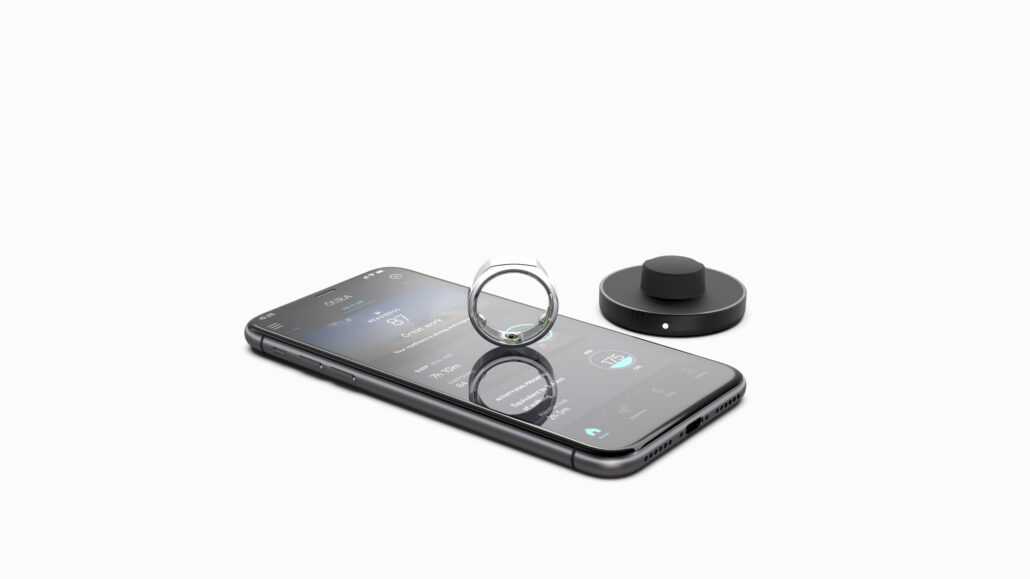 The Oura Ring is a small wearable ring looks sleek and unobtrusive on your finger but packs a punch with its wide range of technology. During the day it tracks your activity and calories. At night, it monitors temperature, movement, and heart rate so that you can understand the areas you need to focus on to improve sleep.
The Oura Ring is a small wearable ring looks sleek and unobtrusive on your finger but packs a punch with its wide range of technology. During the day it tracks your activity and calories. At night, it monitors temperature, movement, and heart rate so that you can understand the areas you need to focus on to improve sleep.
Every day you’ll have access to data on your sleep cycle types, the quality of your sleep and the quantity. This ring gives you access to wellbeing trends with daily, weekly, and monthly views of all contributing factors to your sleep, including stress and workout recovery!
Garmin Fenix Watch
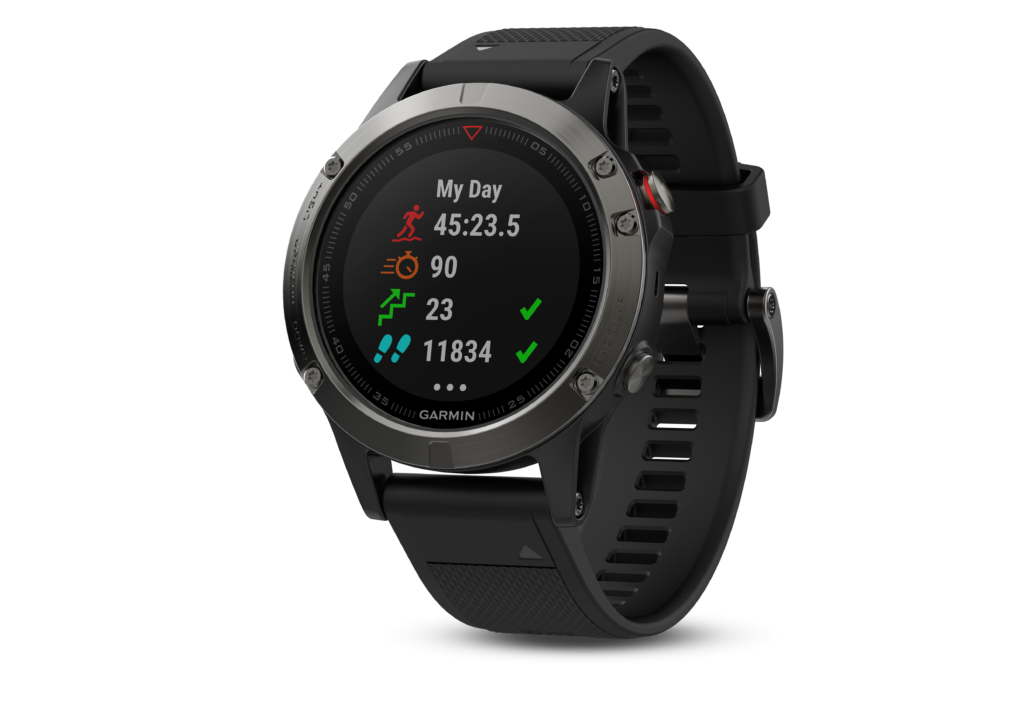 The Garmin Fenix Watch is a rugged accessory made for outdoor adventures and also for your indoor rest time. It does a lot of what other smart watches does: tracking heart rate and movement. But it also has GPS, satellite reception and advanced biomechanical measuring for athletic performance.
The Garmin Fenix Watch is a rugged accessory made for outdoor adventures and also for your indoor rest time. It does a lot of what other smart watches does: tracking heart rate and movement. But it also has GPS, satellite reception and advanced biomechanical measuring for athletic performance.
When it is time to wind down, this watch also has the ability to the ability to track and provide data for light and deep sleep, REM (rapid eye movement), and awake time throughout your cycle. And, many stylish options!
Other Wearables
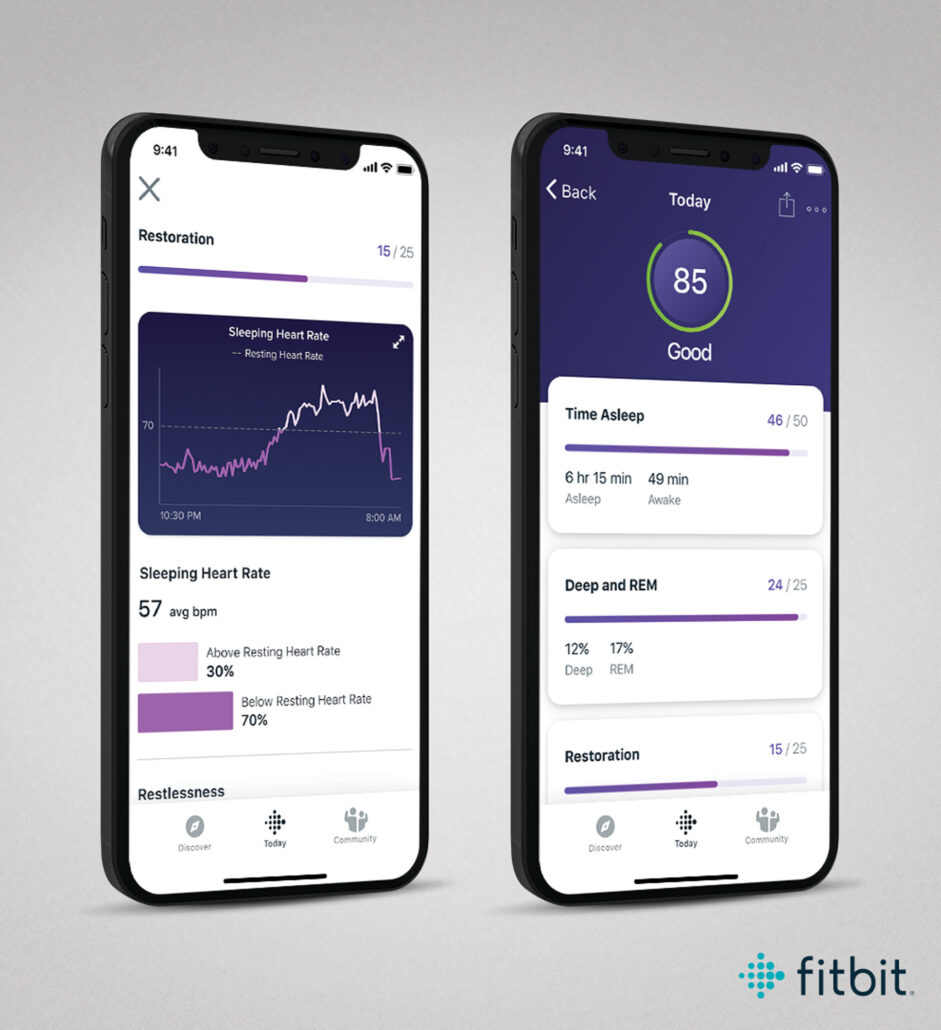
Of course other wearable watches such as Fitbit and Apple Watch have the capacity to track your sleep cycles as well, however you want to research whether or not it is meeting your needs as each wearable is different. If you have a health and fitness tracker, check to see if it will also track and analyze the quality of your sleep. The more your activity tracker can do, the better the picture of your overall health.
If you’re someone who is nervous about uploading your biometric data to an unknown server and don’t want to use a wearable sleep tracker, you can still benefit from tracking your sleep the old school way – with a journal. Keeping a physical sleep journal or log in a sleep tracker app on your phone can help you recognize you have a problem. Start by tracking when you go to bed, when you thought you fell asleep and any awakenings during the night.
What if your challenge isn’t staying asleep, but falling asleep in the first place? There are a number of factors that might make it challenging for you to fall asleep, from the external environment of your bedroom to your internal mental monologue. Tracking can help you determine where to focus. Let’s now discuss how to improve your bedroom environment to help you sleep better. (See the best wearable tech options here: How Wearable Tech Is Revolutionizing and Personalizing Healthcare)
Fall asleep faster
For a strong majority of us, the trouble with falling asleep comes from the incessant train of thoughts running through our heads. Whether you’re stressed about work, thinking about your to-do list, or wondering if there are aliens on other planets, we all fall into the endless loop of thoughts that make it hard to fall asleep.
So here are some sleep tech tools that can help soothe anxiety and quiet thoughts.
Headspace
A lot of people are finding success with the Headspace App to meditate and drift to sleep. You simply throw in your headphones, turn on the app, and listen to gentle sleep music and guided meditations to help you raise your mindfulness and drift into a calm, deep slumber. What distinguishes Headspace from other apps is the clinically-validated research that informs their product, so you know that they are always using the best health and meditation technology. This sleep app helps you create a customized plan and makes recommendations based on your personal settings. It’s free (or you can buy a premium subscription for expanded access) so why not try it out tonight?
For suggestions on other sleep gadgets that can help you fall asleep, read about Men’s Health Top 13 best gadgets. (https://www.menshealth.com/technology-gear/g23397130/best-sleep-tech/)
Get deeper, high-quality sleep
As I’ve mentioned, the quality of your sleep matters even more than the quantity. Too many of us may “sleep’ for 8 hours, but the majority of that is “light” sleep. If you’re not getting deep REM sleep, your body isn’t fully rejuvenating and resting. The main reasons you’re not getting deep sleep is because of your bedroom environment or not getting enough oxygen (which causes snoring).
Snoring
Are you a snorer? Snoring doesn’t just drive your partner crazy—it actually worsens your sleep quality as well! Snoring occurs when you’re not getting enough oxygen while sleeping, so your body overcompensates. Your body requires more oxygen during sleep to assist in the recovery and restoration process. Without good breathing, you aren’t inhaling the necessary oxygen, so you won’t get a good quality of sleep.
There are a lot of snoring devices out there that you can try. But most men don’t want to put a loud, cumbersome device on their faces to try and get rid of snoring.
SmartNora is a no-contact anti-snoring device that’s showing a lot of awesome results. You place an Expander device insert in your pillow and a Nora sensor on your nightstand. When the sensor hears you snoring, it activates the Expander. This gently moves your pillow to stimulate the throat muscles, which minimizes or stops snoring altogether.
Some men say the Nora is a little obtrusive the first few days when you feel the motion, but most men quickly get used to it. It’s a much better solution than nose strips, mouth guards, and muzzles.
Improve your bedroom environment
There are four key environmental factors that impact your sleep: light, noise, temperature, and air quality. What can you do about these?
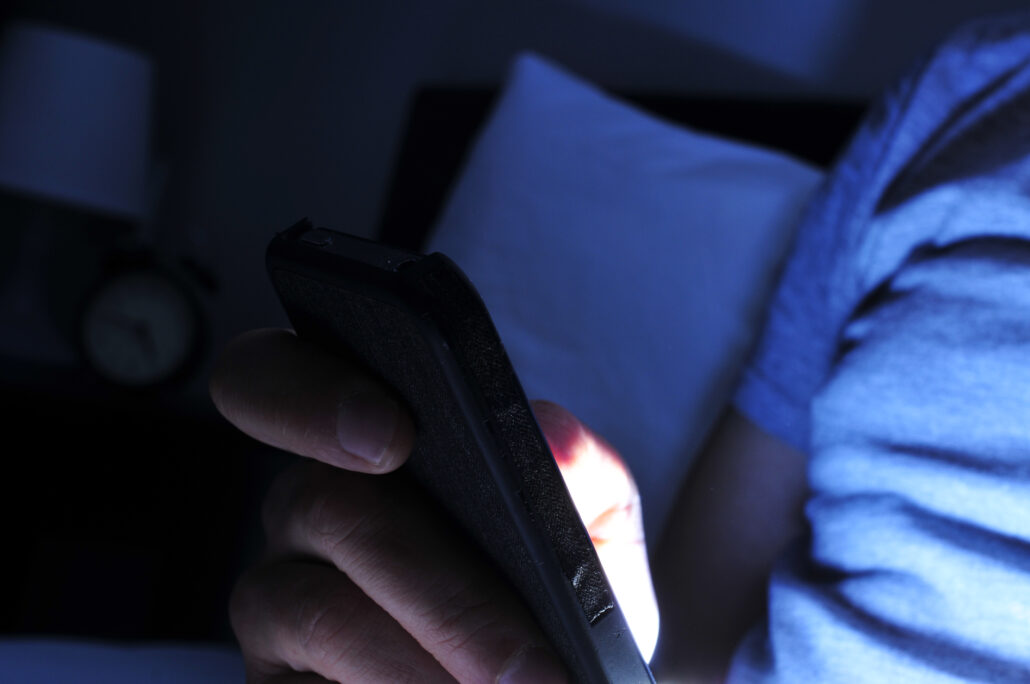
Light
There are two aspects of light that impact your sleep: blue light and light pollution.
Blue Light vs. Red Light
Blue light is the light emitted from electronics, like phones, laptops, and even some light bulbs. Research has proven that blue light suppresses melatonin production and circadian rhythm about twice as long as other wavelengths, which can drastically impact both sleep quality and quantity. Those who have to spend lengthy periods of time in front of screens, perhaps for work, may wish to source prescription glasses which block blue light.
Red light on the other hand, is known to boost melatonin production and soothe you into sleep (amongst other benefits like activating the lymphatic system and reducing inflammation). But you don’t necessarily need your bedroom to have a Moulin Rouge glow. You can buy red spectrum bulbs, which minimize blue light wavelengths and maximize red ones without leaving your room rosy-colored. Try Lighting Science’s Good Night Biological LED Lamp (lsgc.com). Originally developed for NASA astronauts on the International Space Station, it looks like a regular white light but with all the sleep inducing benefits of red.
In addition, you’ll want to reduce and remove blue light in the evening. This can be done with just a few simple shifts:
- Turn on “night shift” on your electronic devices. This reduces blue light by utilizing orange light instead.
- Better yet, don’t use your electronics 2-3 hours before bed. This ensures you’re not subjecting your eyes and brain to any unnecessary light.
- Invest in blue-light blocking glasses. You can choose yellow tinted ones like TrueDarks or newer generation “clear” lenses that reduce 90% of blue light.
- Use Philips Hue ambiance color lights in your bedroom. If you find you respond best to color changes, you can use a setting that mimics a sunset. You can also program it to turn orange/red at night and blue in the morning to naturally promote your circadian rhythm.
Light pollution
Your brain is biologically programmed to be “on” when it sees light and “off” when the sun goes down. So even the smallest stream of light pouring into your bedroom could keep your brain in active mode, even while you’re sleeping. This can make it hard to fall asleep, or it might keep you in a lighter sleep cycle throughout the night.
The best way to do this is with blackout curtains, which block any and all light coming from your backyard or neighbors’ houses. You can also purchase blackout liners for your existing curtains.
Sleep masks are another option, if you don’t mind something on your face. These can make it challenging to wake up in the morning, though, since your brain isn’t exposed to light first thing.
Noise
Any background noise can be distracting and disturbing for your brain, even if you’re not conscious of it. A lot of people prefer to sleep with white noise makers or fans to drown out any external noise and drift into a deeper sleep.
There are a lot of different options to block or adjust the noise you hear at night, based on your preferences. Some popular choices include: CozyPhones, Nightingale Sleep System, and Dreampad.
CozyPhones
These sleep headphones are made for comfort. CozyPhones wear like a head band with breathable material so you can put on your music, books, or meditation without disturbing your partner. This works especially well if you don’t want to keep earplugs in all night.
You can also check out other headphones like Bose SleepBuds or QuietOn.
Nightingale Sleep System
The Nightgale sleep system works if you and your partner both want white noise. This system creates a blanket of sound throughout your room using a stereo effect, which masks environmental noises and lulls you into a gentle sleep. You can even connect it to a smart device to get weather, traffic, and other alerts built in to help wake you up in the morning.
Dreampad
The Dreampad relaxation pillow plays soothing music and sounds to help you sleep right through your pillow, traveling through your entire body. This helps you fall asleep faster and stay asleep longer. It uses gentle vibrations so it won’t wake up your partner, and it’s been backed by a number of studies as one of the best ways to minimize pre-sleep stress.
Note: If you want to listen to music but don’t want the music to stimulate your brain, consider listening to binaural beats. Theta waves initiate drowsy, light sleep while delta waves keep you in a deep sleep. You can find these sorts of binaural beats on meditation apps like Insight Timer or even on YouTube videos! (Check out this video of 8 hours of theta waves.)
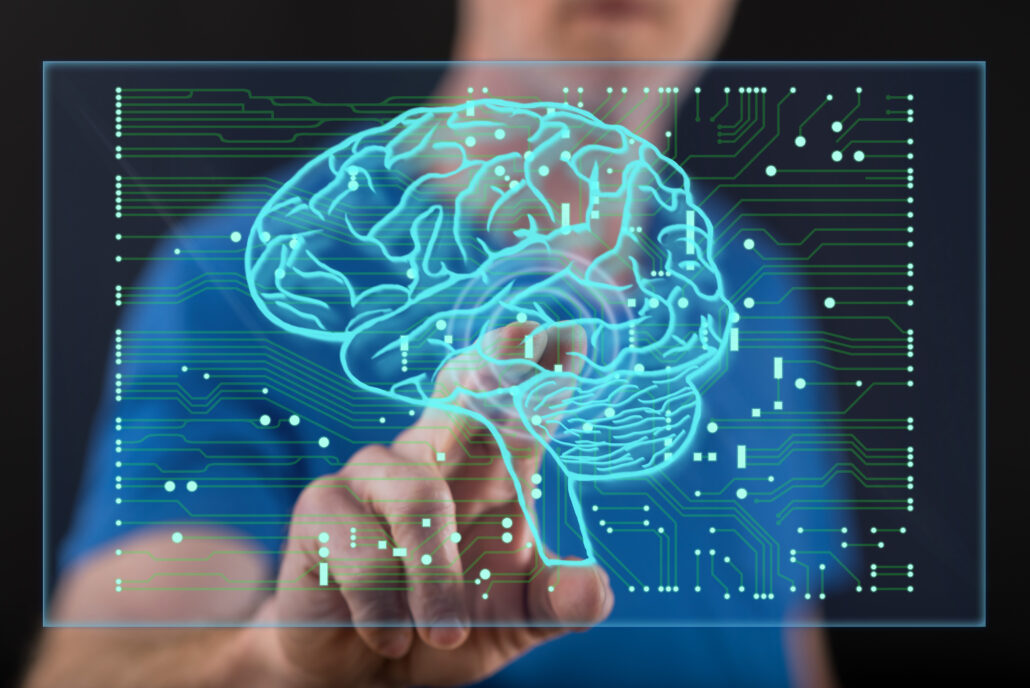
Temperature
Studies show that sleeping in a cold room is actually better for your health than sleeping in a warm one. Our body temperature naturally drops while we sleep, so a cooler bedroom can reinforce the body’s instinct to sleep. Temperatures between 60 and 68 degrees have been shown to stimulate the production of melatonin, which is the “sleep hormone.”
You can sleep with a fan, like a Dyson cool air purifier, to cool down your room. However, moving air may actually make it harder to sleep for some people. If you’re not too fond of the idea of a fan it may be worth looking at an air filter from somewhere like air purifier first may be a better option, as there will be less of a direct flow of air compared to a dyson fan.
Instead, I recommend a Nest thermostat. You can program your smart thermostat to make your A.C. cooler at night to help you fall asleep, but then it can get warmer in the morning to help you wake up easier. (No one likes to leave their comfy bed if it’s too cold in the morning.) Plus, you can save money on your energy bill by programming your thermostat to cool and heat your house in accordance with your routines and lifestyle.
You can also try out cooling sheets. These promote air flow and minimize perspiration, so you can stay covered while staying cool. Sheex is a popular option thanks to their Sleep-Fit Technology with advanced thermoregulation. Plus, their sheets are super soft and quick drying.
Natural solution: sleep naked! Doesn’t hurt, right?
Air quality
Poor air quality in your bedroom may actually play the biggest role in your ability to sleep soundly through the night. Our bodies require high levels of oxygen at night. If your bedroom doesn’t have clean, pure oxygen available, your body can’t fall into that restful state it needs for restoring balance.
See what your air quality looks like with a monitor like Awair. This analyzes and tracks toxins, chemicals, dust, humidity, and carbon dioxide to determine what your bedroom environment is like. It will even learn your routines, habits, and lifestyle to determine how your living impacts your air quality. Awair even interacts with other smart home devices to offer personalized recommendations that can improve your air quality.
To purify your air, I recommend the Pure Cool Link Air Purifier by Dyson. This two-in-one fan purifies 99.97% of allergens and pollutants, even those as small as 0.3 microns. It also keeps you cool while purifying, so you can have a chillier bedroom at night as well (and save on you’re HVAC bill).
You also want to keep the air humid, which helps keep your sinuses lubricated and your skin soft. Plus, humidity helps you sleep better. You can purchase a humidifier, or you can even use an essential oil diffuser. This will add a bit of moisture to the air while also making your room smell incredible. Add lavender, bergamot, and eucalyptus essential oils to induce superior sleep.
Natural air quality solution: succulents! Succulents continue to intake carbon dioxide and release oxygen at night (other plants stop releasing oxygen at night). So putting a few succulent plants in your bedroom can purify the air and add in more oxygen.
Wake up energized
Waking up is part of the sleep process as well. If you wake up in the middle of a dream, you’re waking up from deep REM sleep—the sleep that is used to restore your body back to healthy homeostasis. Interrupting this pattern stops your body in the middle of its work, which will leave you feeling groggy, tired, and unrested the whole day.
You want to wake up naturally, so you feel energetic and vital to take on the day. That’s why I recommend using a sunrise alarm clock. These gadgets will wake you up gently in accordance with your tracked sleep rhythm, using light that mimics the rise of the sun. Your brain will slowly start to acknowledge the rising light, so it will wake up naturally without the shock of an alarm clock.
Popular sun alarm clocks are the Nox Sleep Light and Philips Wake-Up Light.
Nox Sleep Light
This Nox sleep light will monitor your sleep quality, help you fall asleep, and wake you up naturally. I love that it adjusts according to your personal body clock. So, it will send off a red wavelength when you’re falling asleep to raise your production of melatonin. Then, it will wake you up at the lightest part of your sleep so you’ll feel awake and energized. It can also track your bedroom environment like temperature, humidity, light, and noise to optimize your sleep moving forward.
Philips Wake-up Light
Philips lights offers several versions of their sunrise lamp. These offer natural wake up sounds and sunrise simulation, but they also include simulated sunsets and sleep music. This is a great starter option if you already have a sleep tracker.
Can sleep gadgets really help me sleep?
The good news is that in this age of technology, many sleep problems can be resolved through access to these cool gadgets. Instead of being prescribed a pharmaceutical medication, learning to reduce blue light and listening to a meditation at bedtime may be the alternative you need. You’ll have to experiment to find the best sleep aid for your personal challenges. However, these sleeping tips aren’t meant to replace professional sleep therapy.
If you’re having a hard time falling or staying asleep, just buying up all of these bedroom gadgets isn’t necessarily going to help (and if your problems are chronic, you should really seek assistance from a medical professional, not an app or tech product). If you’re doing everything you can for your sleep and still aren’t seeing results, it may be in your genes. Yup, our sleep schedule is actually part of our genetic expression!
But you can hack your genetic expression, so you can sleep better and healthier. It starts with a consultation to see where your health is now… and where it can be in just a few short months or weeks.
Let’s get you sleeping right, waking well, and living awesome.
It’s time for you to get in the driver’s seat of your health. With elite men’s optimization program, we’ll put you at the peak of your human potential.
Click here to learn more about the lifelong benefits of a personalized genetics consultation and epigenetic coaching program.
I look forward to hearing from you to revolutionize and revitalize your life and vitality. Let’s taking your health to the next level.

